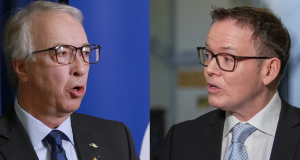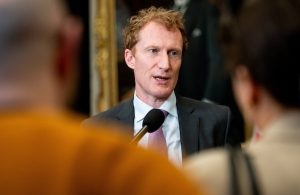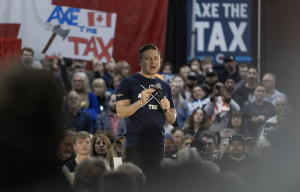Prof. Gerald Baier discusses the difficulties of a merger between B.C. United and B.C. Conservatives
Professor Gerald Baier says a merger between the B.C. United and the B.C. Conservatives would be difficult within the five months before the October election given the uncertainties of who would lead the new party and its name.
Op-ed: Professor Sheryl Lightfoot on the historic Haida Nation agreement
Professor Sheryl Lightfoot says the new Gaayhllxid/Gíihlagalgang “Rising Tide” Haida Title Lands Agreement between the Haida Nation and the government of British Columbia is a “positive step to finally live up to the values shared by Indigenous Peoples and Canadians pertaining to justice and respect for human rights.”
Prof. Antje Ellermann speaks to Globe and Mail about how events overseas can impact Canada’s immigration patterns
Dr. Antje Ellermann, director of UBC’s Centre for Migration Studies, and Dr. Sandra Schinnerl, a postdoctoral fellow at the centre, said measures designed to make Canada more attractive to international students led to a large increase in international students.
Prof. Michael Byers wins 2023 Donner Prize for “Who Owns Outer Space?”
Prof. Michael Byers recently won the 2023 Donner Prize for his book “Who Owns Outer Space? International Law, Astrophysics, and the Sustainable Development of Space,” co-authored with Prof. Aaron Boley of UBC Physics & Astronomy.
Dr. Calla Hummel joins UBC Political Science as Assistant Professor in Comparative Politics of the Global South
The Department of Political Science is delighted to announce that Dr. Calla Hummel will join the University of British Columbia as an Assistant Professor on July 1, 2024.
Prof. Stewart Prest explains Poilievre’s campaigning on Vancouver Island
Professor Stewart Prest explains that resource-dependent ridings in Vancouver Island’s rural areas and small towns are the most susceptible to Conservative messaging. However, their lack of environmental messaging may pose a problem for voters.
Best wishes to Professor George Hoberg for his retirement
Professor George Hoberg, an Associate Faculty member in our department, will be retiring this summer following an incredible tenure at UBC. Dr. Hoberg taught public policy and American politics for 13 years as an Assistant Professor of Political Science when he first came to UBC.
Dr. Terri Givens joins UBC Political Science as Professor of Race, Ethnicity and Politics
The Department of Political Science is delighted to announce that Dr. Terri Givens will join the University of British Columbia as a Professor on July 1, 2024. Terri E. Givens grew up in Spokane, Washington, and loves the outdoors. She is currently a Professor of Political Science at McGill University. She began her career on […]
Op-ed: Prof. Michael Byers on international law in the Middle East
Professor Michael Byers explains that when states use international law’s right to self-defence, they are signalling their desire to avoid an escalation. This rule may be the best hope for peace in the Middle East today.
Prof. Kathryn Harrison comments on carbon tax frustration
Professor Kathryn Harrison says many B.C. residents believe the federal Conservative Party’s campaign that falsely claims carbon taxes are escalating the unaffordability of food, housing and heating.








